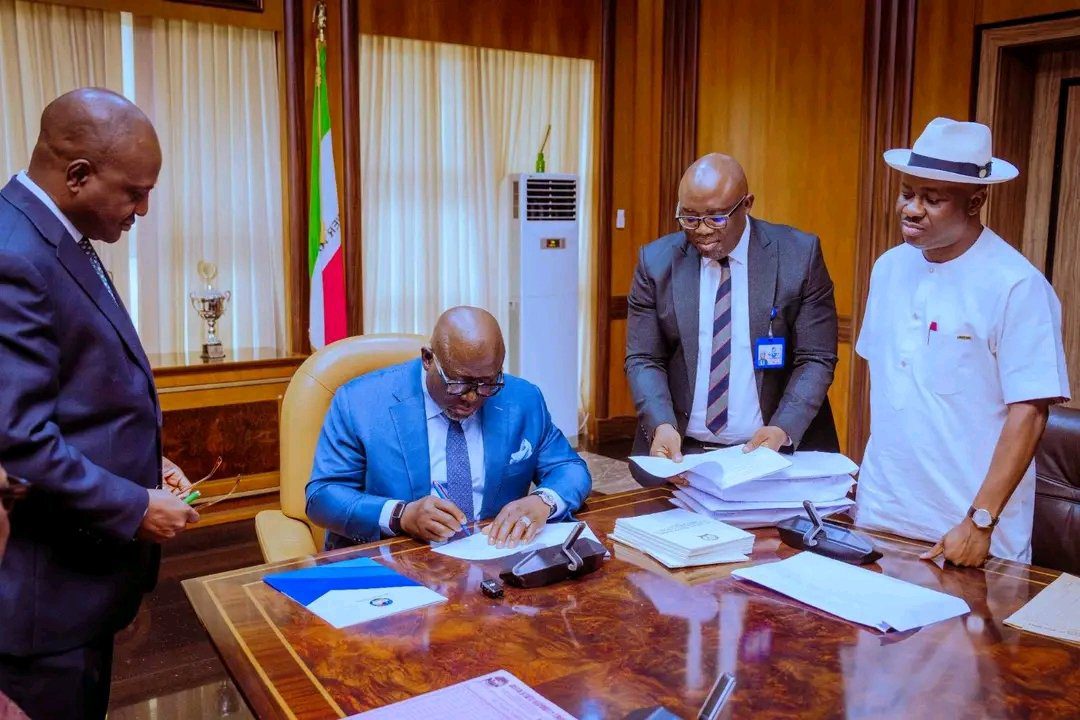On Thursday, 10th April 2025, Delta State Governor, Rt. Hon. Sheriff Oborevwori, signed the Delta State Electricity Bill into law, marking a major milestone in the state’s journey toward energy independence and reform.
This landmark development reflects a long-term vision that began years ago. Back in 2022, as Speaker of the Delta State House of Assembly, Governor Oborevwori presided over the passage of the Delta State Electric Power Sector Bill 2022. Fast forward to Tuesday, 7th May 2024, the Governor initiated the repeal of the 2022 Law and proposed a new framework, leading to the enactment of the Delta State Electric Power Sector Law 2024.
Even before the new law, groundwork had been laid to create the Delta State Electricity Market. Under the leadership of then Commissioner for Energy, Hon. Jerry Ehiwarior (now Chairman of Ika South Local Government Area), the state appointed Alex Bentayga Global Consulting Limited to conduct a comprehensive evaluation of its energy assets.
Now with the signing of the 2024 Law, the Delta State Electricity Regulatory Commission (DSERC) has been established. DSERC will be responsible for:
Licensing generation, transmission, and distribution companies ,
Setting electricity tariffs, and
Ensuring consumer protection within the state.
Next Steps:
1. Constitution of the DSERC Board – This is critical to operationalizing the Commission’s mandate.
2. Formal Notification to NERC – The Delta State Government must inform the Nigerian Electricity Regulatory Commission (NERC) of the enactment of its electricity law and the establishment of DSERC, and request the transfer of regulatory authority for electricity operations within the state.
3. Notification to Distribution Companies (DisCos) – The state must also notify existing DisCos operating within Delta State. Copies of this notification should be shared with the National Council on Privatisation (NCP) and the Bureau of Public Enterprises (BPE), requesting that the DisCos comply with Section 230(3) of the Electricity Act.
Once these steps are completed, DSERC will be empowered to license generation, transmission, and distribution companies, creating an enabling environment for Independent Power Producers (IPPs) and private sector participation.
This opens a new chapter for industrial growth in Delta State, especially within its Special Economic Zones. The Kwale Free Trade Zone (FTZ), for example, is strategically positioned to benefit from embedded generation and distribution models. It boasts four layers of gas supply:
Primary supply: From nearby marginal fields and LNG base load (via flow stations),
Secondary/back-up supply: LNG storage and interruptible gas via the OB3 pipeline.
With the Delta State Power Sector Law now in force, the path is clear for transforming Delta’s electricity landscape and powering sustainable economic development.



